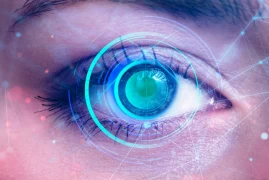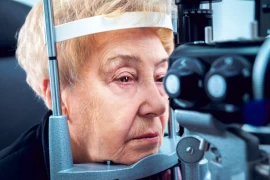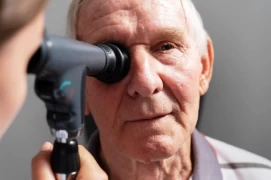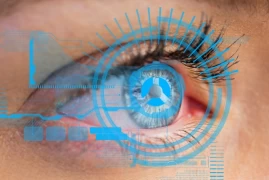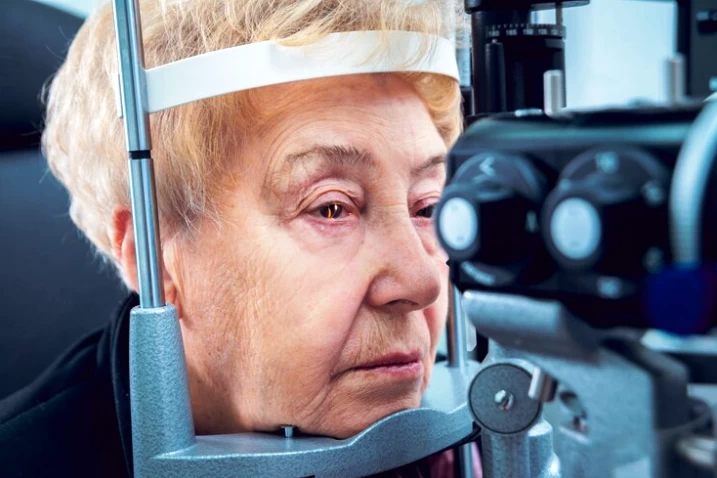
Macular Degeneration: Retinal Disease and Vision Loss
- Macular Degeneration: Retinal Disease and Vision Loss
- What is Macular Degeneration?
- Causes of Macular Degeneration:
- Symptoms of Macular Degeneration:
- Diagnosis of Macular Degeneration:
- Treatment of Macular Degeneration:
- Preventive Measures for Macular Degeneration:
- Conclusion:
Eye health is a critical factor for overall quality of life. However, in some cases, a condition called macular degeneration, affecting a crucial part of the eye's posterior region called the macula or yellow spot, can lead to significant deterioration in quality of life by affecting the central vision.
What is Macular Degeneration?
Macular degeneration, also known as age-related macular degeneration (AMD), typically occurs in individuals aged 50 and above. This condition arises from damage or death of cells in the macula of the retina. The macula is a central region that controls a significant portion of our vision. Therefore, individuals with macular degeneration are at risk of losing detailed visual abilities.
Types of Macular Degeneration:
- Dry (Non-Progressive) Macular Degeneration: Characterized by a gradual thinning and degeneration of cells on the macula. Yellowish spots may appear in the eyes, but vision loss is typically mild.
- Wet (Progressive) Macular Degeneration: This type can lead to faster vision loss due to the accumulation of fluid and blood between blood vessels. This condition may require urgent medical intervention.
Causes of Macular Degeneration:
The exact cause of macular degeneration is unknown, but risk factors such as age, genetics, smoking, high blood pressure, and family history can influence its development.
Symptoms of Macular Degeneration:
Symptoms of macular degeneration may include:
- Central vision distortion
- Difficulty distinguishing colors
- Difficulty finding the edges of objects
- Difficulty reading
- Slow or impaired adaptation time
Diagnosis of Macular Degeneration:
Various eye examinations and imaging tests are used in the diagnosis of macular degeneration. Here are some commonly used methods for diagnosing macular degeneration:
- Eye Examination: An eye doctor carefully examines the structures inside the eye and the macula to evaluate the patient's complaints. Additionally, the patient's visual acuity is tested.
- Optical Coherence Tomography (OCT): OCT is a high-resolution imaging technique that assists in examining the layers of the retina. It shows cross-sectional images of the retina and enables doctors to assess changes in thickness in different layers.
- Fundus Fluorescein Angiography (FFA): In this test, a contrast agent is injected into the vascular system, and images of the blood vessels on the retina are taken. This method is used to determine the condition of the vessels and identify possible leaks.
- Indocyanine Green (ICG) Angiography: ICG is another imaging technique that allows for more detailed visualization of blood vessels. This test can help diagnose the wet form of macular degeneration.
- Intraocular Pressure Measurement: Tonometry can be used to measure intraocular pressure. Abnormal increases in intraocular pressure may indicate eye problems such as macular degeneration.
- Electrophysiological Tests: Electrophysiological tests can be used to evaluate the function of the optic nerve and retina.
During the diagnosis process, the patient's symptoms, medical history, family history, and risk factors are taken into consideration. Based on the results of these tests, the doctor determines the type of the disease and creates an appropriate treatment plan. Early diagnosis is crucial to control the progression of macular degeneration and minimize vision loss. Therefore, regular eye examinations, especially for individuals aged 50 and above, are recommended.
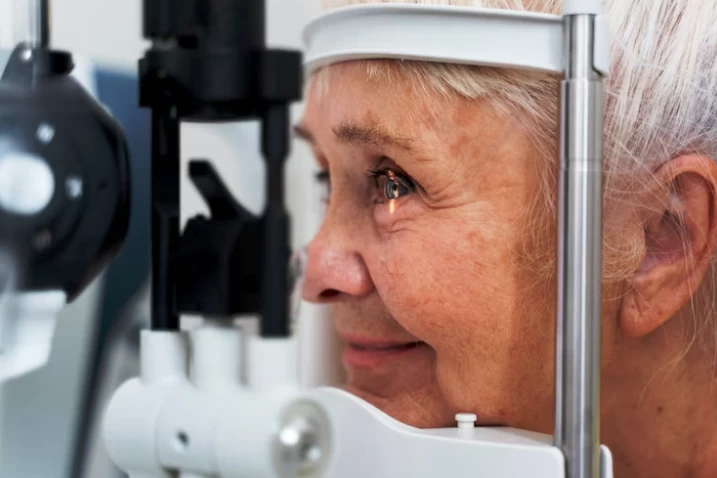
Treatment of Macular Degeneration:
The treatment methods for macular degeneration depend on the type of the disease (dry or wet form) and the patient's overall health. Here are the treatment options for macular degeneration:
- Dry Macular Degeneration Treatment:
- Surveillance and Follow-up: In the early stages, doctors may monitor the patient regularly to assess whether the disease is progressing.
- Diet and Supplements: Some studies suggest that the use of nutrients and supplements such as antioxidants, omega-3 fatty acids, zinc, and vitamins A, C, and E may support eye health.
- Anti-Vascular Endothelial Growth Factor (anti-VEGF) Drugs: In some cases, anti-VEGF drugs injected into the eye may be used to slow down the progression of dry macular degeneration.
- Wet Macular Degeneration Treatment:
- Anti-VEGF Drugs: The most commonly used treatment for wet macular degeneration is anti-VEGF drugs. These drugs can reduce abnormal blood vessel growth and slow down vision loss.
- Photodynamic Therapy (PDT): In this treatment, a light-sensitive substance is given to the patient, and the area exposed to this substance is targeted with a specific light. This can affect abnormal blood vessels, causing them to close.
- Laser Therapy: Laser therapy may be used to destroy or seal off abnormal blood vessels. However, this method is generally more limited compared to preferred alternatives in the treatment of wet macular degeneration.
- Surgical Methods: Surgical interventions may be considered in rare cases of severe macular degeneration, especially in complications like retinal detachment.
The treatment plan is personalized based on the patient's condition and the stage of the disease. In cases where the condition is untreatable, supportive measures such as rehabilitation and assistive vision devices may be considered. Early diagnosis allows for the control of macular degeneration and the prevention or slowing down of vision loss. Therefore, regular eye examinations and adopting a healthy lifestyle are crucial.
Preventive Measures for Macular Degeneration:
To prevent macular degeneration, the following measures can be taken:
- Regular eye examinations
- Adopting a healthy lifestyle (not smoking, balanced nutrition, regular exercise)
- Use of sunglasses for eye protection
Conclusion:
Macular degeneration is a serious eye disease that can lead to vision loss in older individuals. With early diagnosis and appropriate treatment, the progression of vision loss can be prevented or slowed down. Therefore, regular eye examinations and adopting a healthy lifestyle are essential.

Op. Dr. Şehriyar Hanhüseyinli
Ophthalmologist

